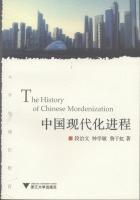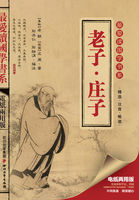The robe of speculative cobwebs, embroidered with flowers of rhetoric, steeped in the dew of sickly sentiment, this transcendental robe in which the German Socialists wrapped their sorry "eternal truths," all skin and bone, served to wonderfully increase the sale of their goods amongst such a public.
And on its part, German Socialism recognised, more and more, its own calling as the bombastic representative of the petty- bourgeois Philistine.
It proclaimed the German nation to be the model nation, and the German petty Philistine to be the typical man. To every villainous meanness of this model man it gave a hidden, higher, Socialistic interpretation, the exact contrary of its real character. It went to the extreme length of directly opposing the "brutally destructive" tendency of Communism, and of proclaiming its supreme and impartial contempt of all class struggles. With very few exceptions, all the so-called Socialist and Communist publications that now (1847) circulate in Germany belong to the domain of this foul and enervating literature.
2. CONSERVATIVE, OR BOURGEOIS, SOCIALISM
A part of the bourgeoisie is desirous of redressing social grievances, in order to secure the continued existence of bourgeois society.
To this section belong economists, philanthropists, humanitarians, improvers of the condition of the working class, organisers of charity, members of societies for the prevention of cruelty to animals, temperance fanatics, hole-and-corner reformers of every imaginable kind. This form of Socialism has, moreover, been worked out into complete systems.
We may site Proudhon's Philosophie de la Misere as an example of this form.
The Socialistic bourgeois want all the advantages of modern social conditions without the struggles and dangers necessarily resulting therefrom. They desire the existing state of society minus its revolutionary and disintegrating elements. They wish for a bourgeoisie without a proletariat. The bourgeoisie naturally conceives the world in which it is supreme to be the best; and bourgeois Socialism develops this comfortable conception into various more or less complete systems. In requiring the proletariat to carry out such a system, and thereby to march straightway into the social New Jerusalem, it but requires in reality, that the proletariat should remain within the bounds of existing society, but should cast away all its hateful ideas concerning the bourgeoisie.
A second and more practical, but less systematic, form of this Socialism sought to depreciate every revolutionary movement in the eyes of the working class, by showing that no mere political reform, but only a change in the material conditions of existence, in economic relations, could be of any advantage to them. By changes in the material conditions of existence, this form of Socialism, however, by no means understands abolition of the bourgeois relations of production, an abolition that can be effected only by a revolution, but administrative reforms, based on the continued existence of these relations; reforms, therefore, that in no respect affect the relations between capital and labour, but, at the best, lessen the cost, and simplify the administrative work, of bourgeois government.
Bourgeois Socialism attains adequate expression, when, and only when, it becomes a mere figure of speech.
Free trade: for the benefit of the working class. Protective duties: for the benefit of the working class. Prison Reform: for the benefit of the working class. This is the last word and the only seriously meant word of bourgeois Socialism.
It is summed up in the phrase: the bourgeois is a bourgeois -- for the benefit of the working class.
3. CRITICAL-UTOPIAN SOCIALISM AND COMMUNISM
We do not here refer to that literature which, in every great modern revolution, has always given voice to the demands of the proletariat, such as the writings of Babeuf and others.
The first direct attempts of the proletariat to attain its own ends, made in times of universal excitement, when feudal society was being overthrown, these attempts necessarily failed, owing to the then undeveloped state of the proletariat, as well as to the absence of the economic conditions for its emancipation, conditions that had yet to be produced, and could be produced by the impending bourgeois epoch alone. The revolutionary literature that accompanied these first movements of the proletariat had necessarily a reactionary character. It inculcated universal asceticism and social levelling in its crudest form.
The Socialist and Communist systems properly so called, those of Saint-Simon, Fourier, Owen and others, spring into existence in the early undeveloped period, described above, of the struggle between proletariat and bourgeoisie (see Section 1. Bourgeois and Proletarians).
The founders of these systems see, indeed, the class antagonisms, as well as the action of the decomposing elements, in the prevailing form of society. But the proletariat, as yet in its infancy, offers to them the spectacle of a class without any historical initiative or any independent political movement.
Since the development of class antagonism keeps even pace with the development of industry, the economic situation, as they find it, does not as yet offer to them the material conditions for the emancipation of the proletariat. They therefore search after a new social science, after new social laws, that are to create these conditions.
Historical action is to yield to their personal inventive action, historically created conditions of emancipation to fantastic ones, and the gradual, spontaneous class-organisation of the proletariat to the organisation of society specially contrived by these inventors. Future history resolves itself, in their eyes, into the propaganda and the practical carrying out of their social plans.















